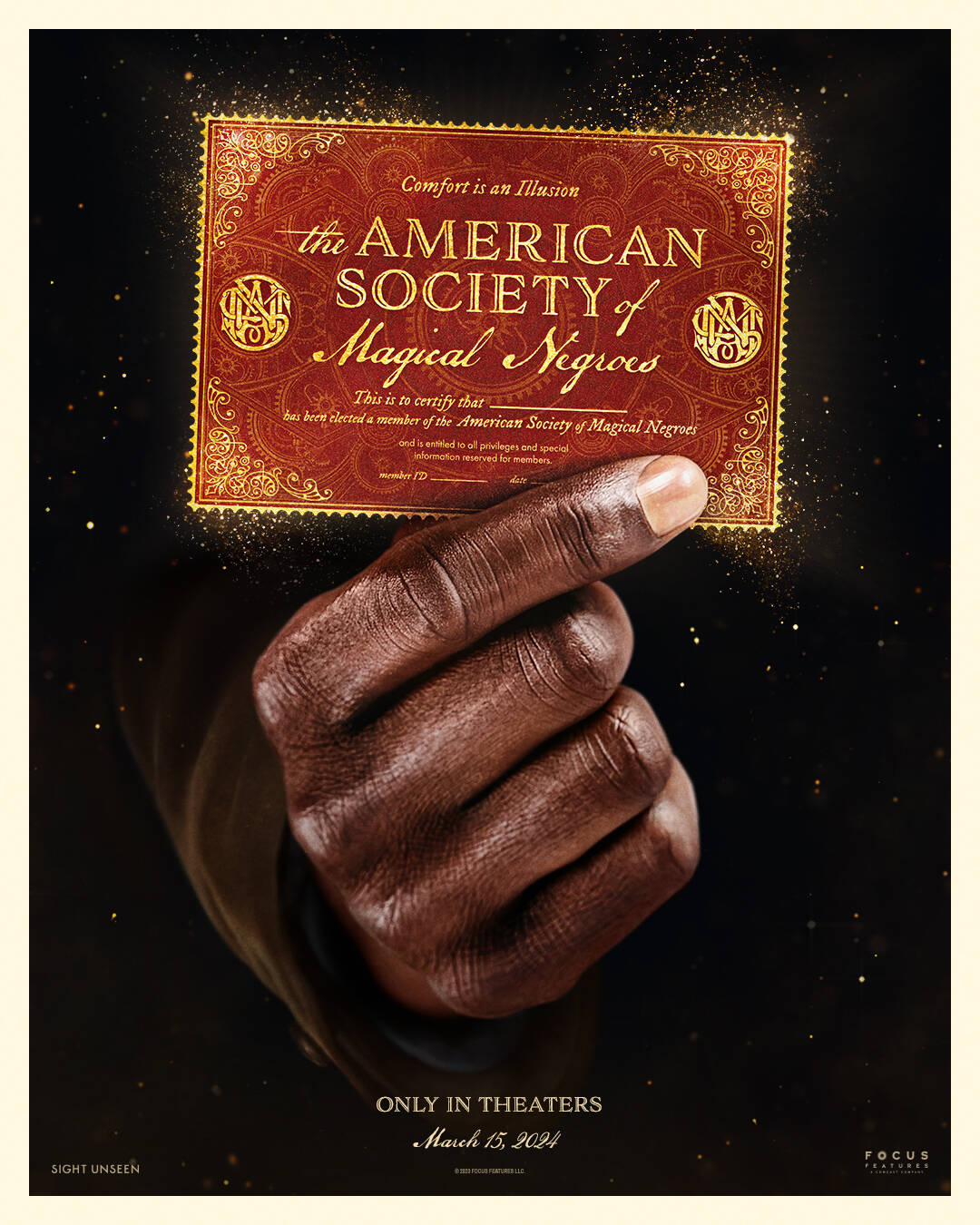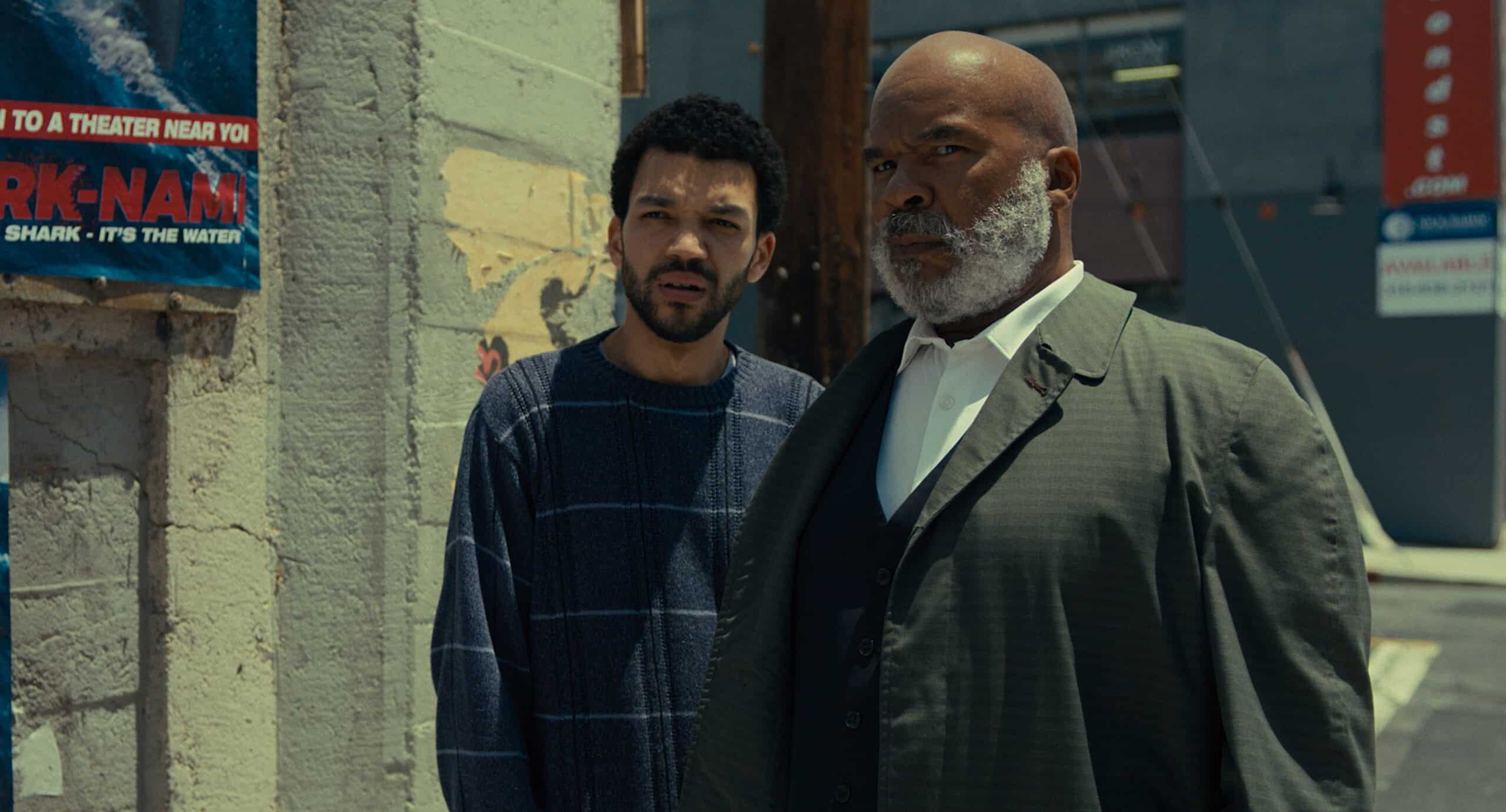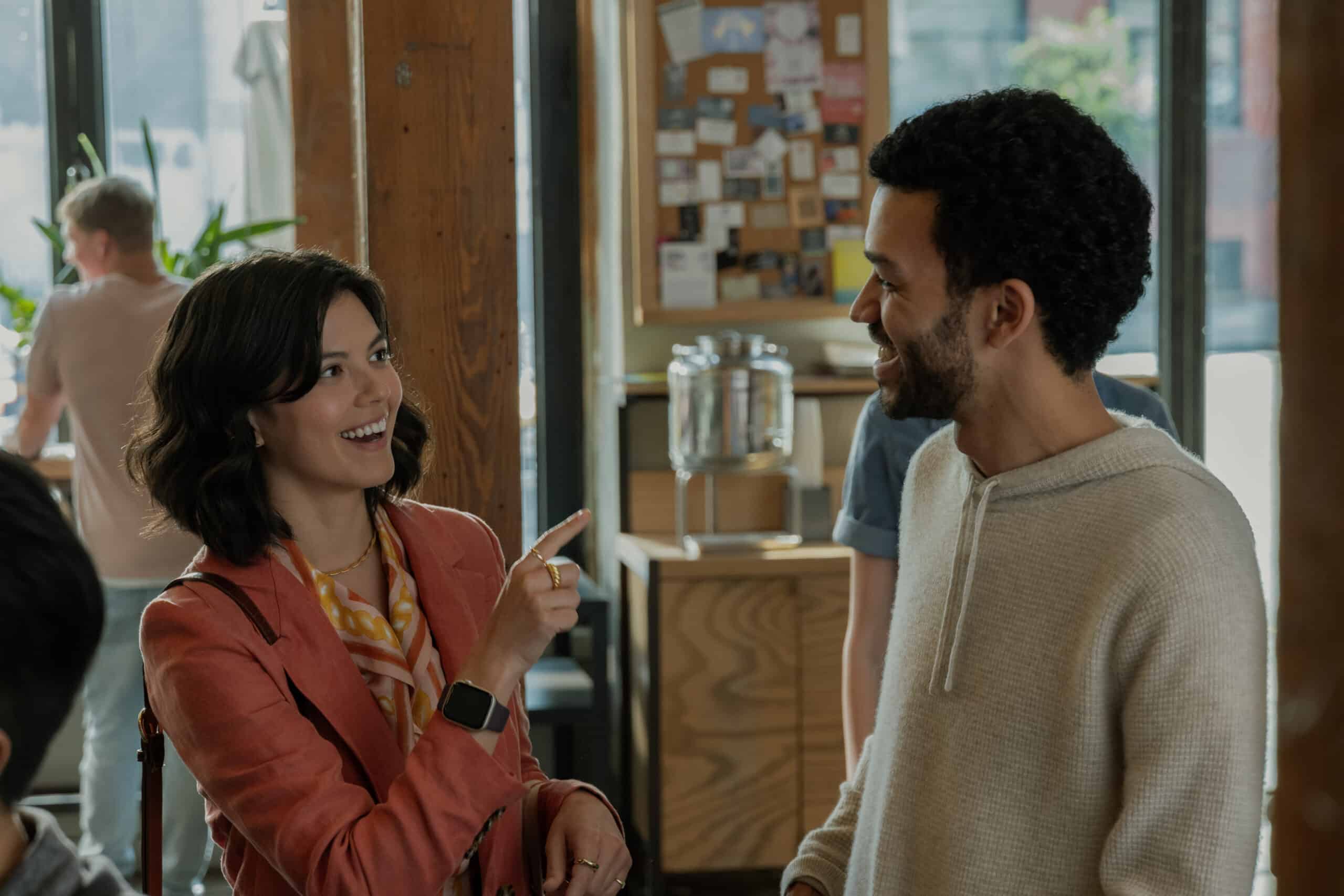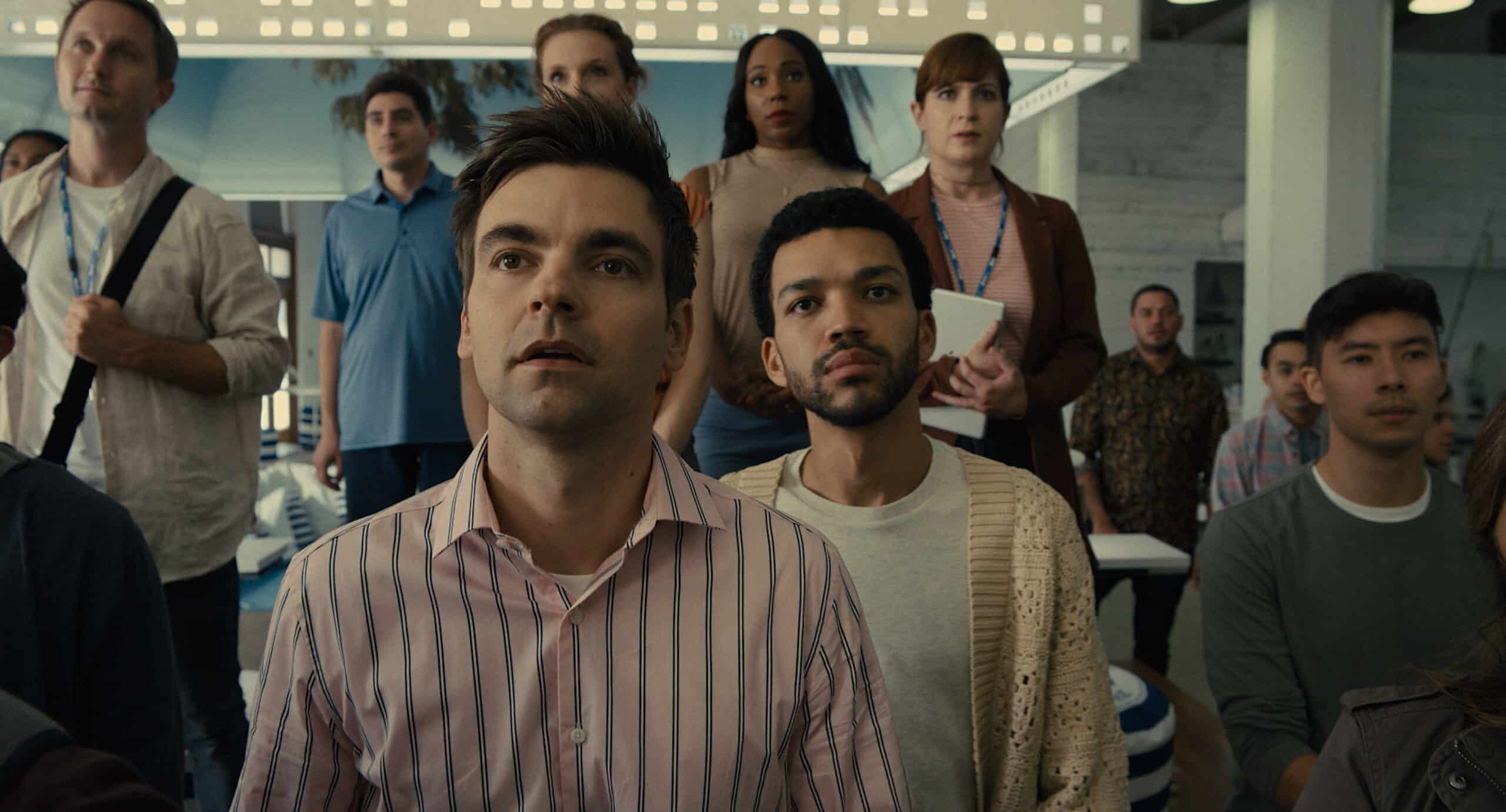The American Society Of Magical Negroes (2024) Review – A Good Romance Film Paired With A Standard Criticism Of Racism
“The American Society of Magical Negroes” has a top-quality romance film, worth its own motion picture, weighed down by the usual conversations and monologues on American racial relations.

Spoiler Alert: This summary and review contains spoilers.
Additionally, some images and text may include affiliate links, meaning we may earn a commission or receive products if you make a purchase.
Plot Summary
Aren is a sculptor who uses yarn but has immense trouble expressing himself. Maybe it’s better cause he was a Black kid who grew up in a White neighborhood? Perhaps it was him, while being raised by a White mom, still feeling he had to make himself small, palatable, and unthreatening to feel safe?
All of these qualities led Roger to think that Aren’s consciousness of Whiteness would make him perfect to be a magical negro. However, on his first assignment, the girl he is falling for, his team lead at his new job, Lizzy, is also the crush of his client, Jason. Thus, setting in motion the question of whether Aren will keep a white person comfortable for the safety of others or act selfishly.
Character Guide
| Character’s Name | Actor’s Name |
| Aren | Justice Smith |
| Lizzy | An-Li Bogan |
| Jason | Drew Tarver |
| Roger | David Alan Grier |
Character Description(s)
Aren

Aren is a bi-racial, 27-year-old guy who is heavily into yarn sculptures and grew up in a predominantly White neighborhood. Because of this, he knows microaggressions all too well and has been traumatized enough to develop the coping mechanism of making himself small to feel safe.
Unfortunately for his art career, in making himself seem small, he has lost the ability to market himself, making being a full-time artist, even if highly educated (a graduate from the Rhode Island School of Design), a struggle.
- The actor is also known for their role in “Genera+ion: Season 1.”
Lizzy

Lizzy is Jason’s team lead on the design team and has long been fighting to advocate for herself more and not let imposter syndrome get in the way of her progress.
Jason

As one of the top performers at MeetBox, Jason sees himself as on the fast track for a promotion, and he believes nothing was handed to him; it was all hard work. However, viewers will see that, between being a male and White, Jason has some things going for him, and they are paving the way for his future.
Roger
Roger is Aren’s mentor in The American Society of Magical Negroes, and he makes it a point that he doesn’t do recruiting often. However, there is something special about Aren, so he decides to take him on and guide him through the highs and lows of being part of the society.
- The actor is also known for their role in “Candy Cane Lane.”
Review
Good If You Like
- Films about American racial relations
Similar To This
Check out our movies page for our latest movie reviews and recommendations.
Notable Performances or Moments
Aren and Lizzy’s Chemistry
When it comes to the flaws of the movie, I’m sure most can point out one. However, there is no denying Smith and Bogan’s chemistry. It’s the kind that makes the conversations and monologues about race feel like the inside of a Trojan horse because this movie could be sold on the romance.
Now, there is a reason for this, how perfect the romance can feel, but until you learn about it, you swoon and see the Society of Magical Negroes less of a pull to want to watch this movie and more so an adversary. Almost as much as Jason and his ignorance and arrogance.
Highlights
Conversations About Survival
There is no denying that “The American Society of Magical Negroes” is very much in line with many films and shows that shout out the challenge, agony, and frustration which is being Black in America and, while brilliant, sometimes feeling the safest thing you can be is number 2. That the most secure career path is to let a white man lead, feel good, and be confident, naïve, and sometimes ignorant.
Code-switching is one version of this, the trope characters who were magical negroes on children’s shows – you know, the best friend whose life and storyline depended on solving their best friend’s troubles? This film can push you to think about how we’ve been shown that it’s about surviving the day, not letting our ego in the moment take our life.
Yet, at the same time, the film presents reasons to be against being lesser than for the sake of someone else’s comfort or your perceived belief of the worst-case scenario. Whether as a test, question or push, there eventually is the notion that, like Aren, you should no longer live a life where you think or act as if the worst could happen. For while, as Roger said, making it home should mean you have no regrets and that dying little by little, day by day, is better than at once, is that really a way to live? Can you truly be happy when you are free from chains yet still trying to manage a White person’s feelings to survive?
Perhaps best said by Maya Angelou in her book, “Heart of a Woman.”
Blacks should be used to play whites. For centuries we had probed their faces, the angles of their bodies, the sounds of their voices and even their odors. Often our survival had depended upon the accurate reading of a white man’s chuckle or the disdainful wave of a white woman’s hand. Whites, on the other hand, always knew that no serious penalty threatened them if they misunderstood blacks. Whites were safely isolated from our concerns. When they chose, they could lift the racial curtain which separated us. They could indulge in sexual escapades, increase our families with mulatto [children], make fortunes out of our music and eunuchs out of our men, then in seconds they could step away, and return unscarred to their pristine security. The cliche of whites being ignorant of blacks was not only true, but understandable. Oh, but we knew them with the intimacy of a surgeon’s scalpel.
— Maya Angelou – Heart of a Woman (Page 162)
Many Black people and those who live under the BIPOC umbrella are certain to understand this, and while “The American Society Of Magical Negroes” may not present anything new or fresh on the take, similar to “American Fiction,” while some might be used to this conversation, monologues on mistreatment and unfairness, others may feel seen, have a need to clap or snap their fingers, for they haven’t heard things put together in a way, whether by Aren or Roger, with the eloquence they haven’t been able to gather when they were in moments that called for it.
On The Fence
The Potential Sequel
The film ends with a reveal that there are other societies out there, and when you consider the purpose of The American Society Of Magical Negroes, it pushes you to wonder what is the goal or what threat is the society presented at the end made for? If the Magical Negroes are made to lessen the threat of White men, is the society we meet at the end to lessen the threat of all men or focus on uplifting specific men?
Wishing It Went Deeper
Similar to “Dear White People,” all that “The American Society of Magical Negroes” covers, comparing it to the movie version of “Dear White People,” feels like it doesn’t dive deep enough or go far enough. One example is it could have called out or even pushed the idea of figures well known to modern audiences as Magical Negroes.
Yes, this would have been controversial, but also a reminder that the goal of the society is to protect humanity at large over one’s personal feelings. Also, because of the strength of the romantic plot, I’d submit we didn’t get to know and see much of the society and its members. Aren only has meaningful interactions with Roger, and while Black women are part of the society, he has only one notable interaction with them: when he gets in trouble.
This leads to the classic issue of a Black narrative being wholly focused on the Black male experience, and this isn’t to discount one Black female character who calls out their role and her client or that the president of the society and intro teacher are Black women. However, neither evolves beyond being a title. This is sad since it seems Black men have long broken away from having to be Magical Negroes in media or modern history, while Black women in American media and history still, I’d submit, find themselves pushed to be #2.
That aside; generally, the movie has various aspects that go untapped that make it so the concept of a “Magical Negro” may go explained but not developed as much as you may like. Especially considering while this won’t be the last film or production to talk about race in America, this likely will be the first and last to tap into the Magical Negro trope.
Background Information
| Director(s) | Kobi Libii |
| Writer(s) | Kobi Libii |
| Based On Work By | N/A |
| Date Released | March 15, 2024 |
| Where To Watch | In Theaters |
| Genre(s) | Comedy |
| Film Length | 1 Hour 44 Minutes |
| Content Rating | Rated PG-13 |
| Content Information | Dialog: Cursing | Violence: Nothing notable | Sexual Content: None | Miscellaneous: Drinking |
Images used for editorial and commentary purposes. All rights remain with their respective copyright holders.


